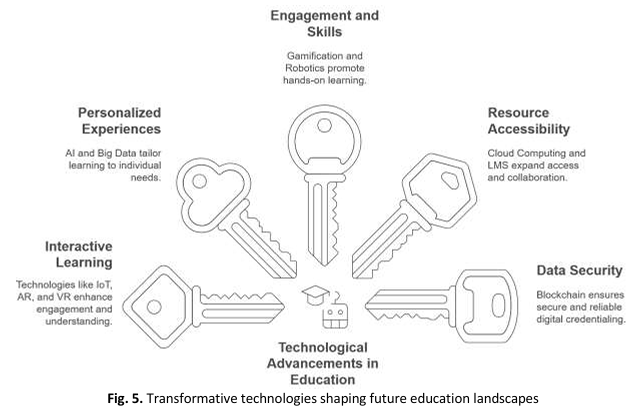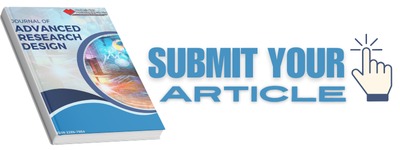Revolutionizing Education: Exploring Technological Innovations, Opportunities and Challenges Across I0T, AR, VR, AI, LMS, ML, Gamification and Emerging
DOI:
https://doi.org/10.37934/ard.136.1.108137Keywords:
Bibliometric, educational technology, engineering education, immersive learning, science educationAbstract
Technological advancements are reshaping science and engineering education by fostering interactive, hands-on, and personalized learning experiences. This review examines the role of key technologies, including the Internet of Things (IoT), Augmented Reality (AR), Virtual Reality (VR), Artificial Intelligence (AI), Learning Management Systems (LMS), Gamification, 3D Printing, Blockchain, Cloud Computing, Robotics, Big Data, and machine learning (ML), in making a modern education. Bibliometric analysis was employed to identify patterns in publication growth, disciplinary focus, and geographical distribution, providing quantitative insights into the evolution of research on educational technologies. Each technology offers unique contributions, such as IoT-enabled smart classrooms, AR and VR for immersive visualizations, AI-driven analytics for personalized learning, and 3D printing for prototyping. The findings highlight the benefits of these innovations, including enhanced engagement, deeper understanding, and global access to resources. Challenges such as high costs, digital divides, inadequate infrastructure, and the need for educator training persist. Using a qualitative review approach, the study synthesizes recent research to provide insights for educators, policymakers, and researchers. It underscores the need for collaborative efforts to overcome barriers and maximize the potential of these technologies in science and engineering education. The results point to future directions, emphasizing the importance of equitable access, teacher training, and scalable solutions to ensure that technology continues to enhance educational outcomes.
Downloads























